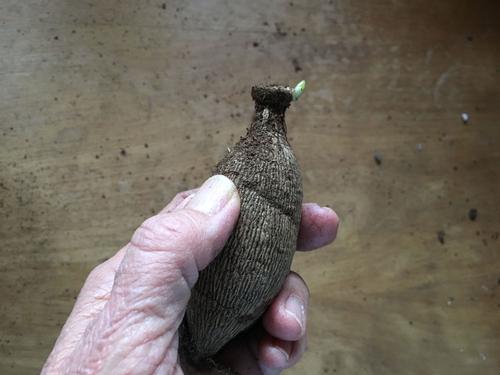
The tubers may be propagated in one of two ways. Here in the U.S., dahlia growers usually divide field-grown clumps and then sell the individual tubers. Separating the tubers is a process that requires patience and experience, because each one must include some stem tissue and an "eye." If it doesn't, the tuber will not sprout.
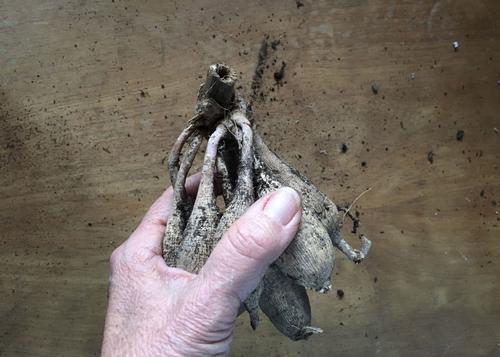
Dahlias that are grown in Holland are usually sold as clumps. Each year’s new crop of clumps starts out as a cutting. Here's how it's done.
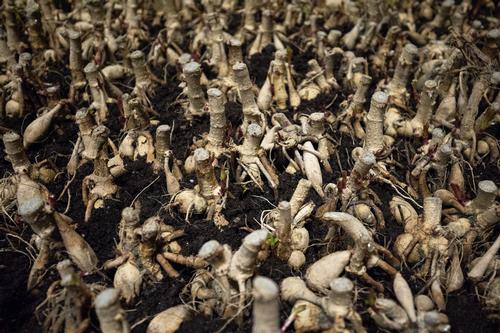
In late winter, growers plant clumps of "mother tubers" that were saved from last year's harvest. They're planted closely together in shallow trays, just deep enough to initiate sprouting.
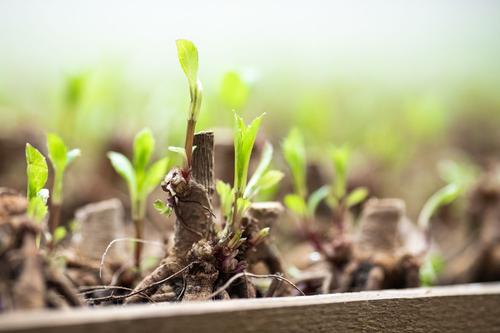
After a few weeks, the tubers begin sending up shoots.
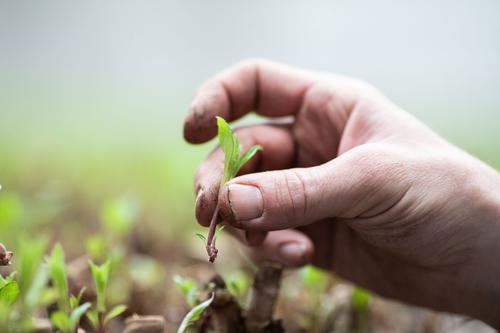
Over the next several weeks, these shoots are harvested by snapping them off the mother plant.
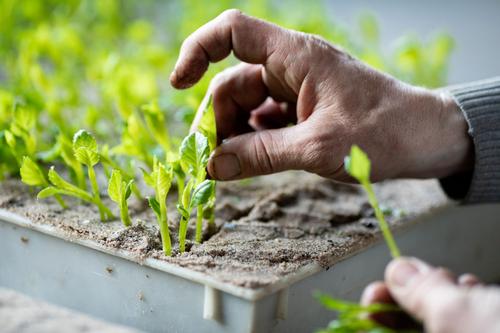
The sprouts are planted into propagation trays that contain pure sand.
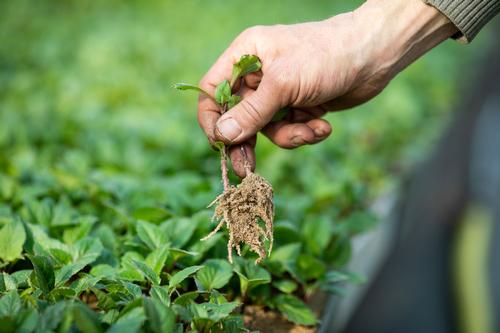
Once the cuttings are well rooted, they are ready to plant in the field.
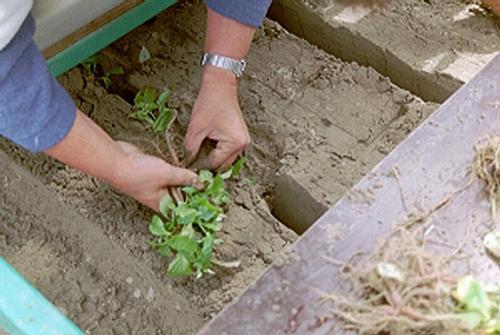
The cuttings are transplanted by hand and spend a full summer growing on the farm. Note the soil, which is almost pure sand -- ideal for growing dahlias and most other types of flower bulbs!
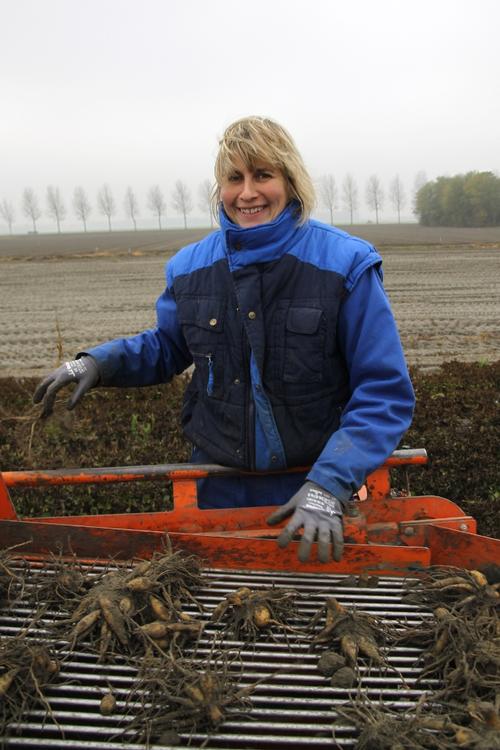
By the end of the growing season, each cutting has become a bushy plant. In late fall, these plants are dug up and the new clumps of tubers are graded and put into cold storage for the winter. In the spring, they are shipped for distribution here in the U.S.
The journey from a tiny cutting to a market-ready clump of dahlias takes more than a year. The easy part happens when you plant the tubers in your garden!


